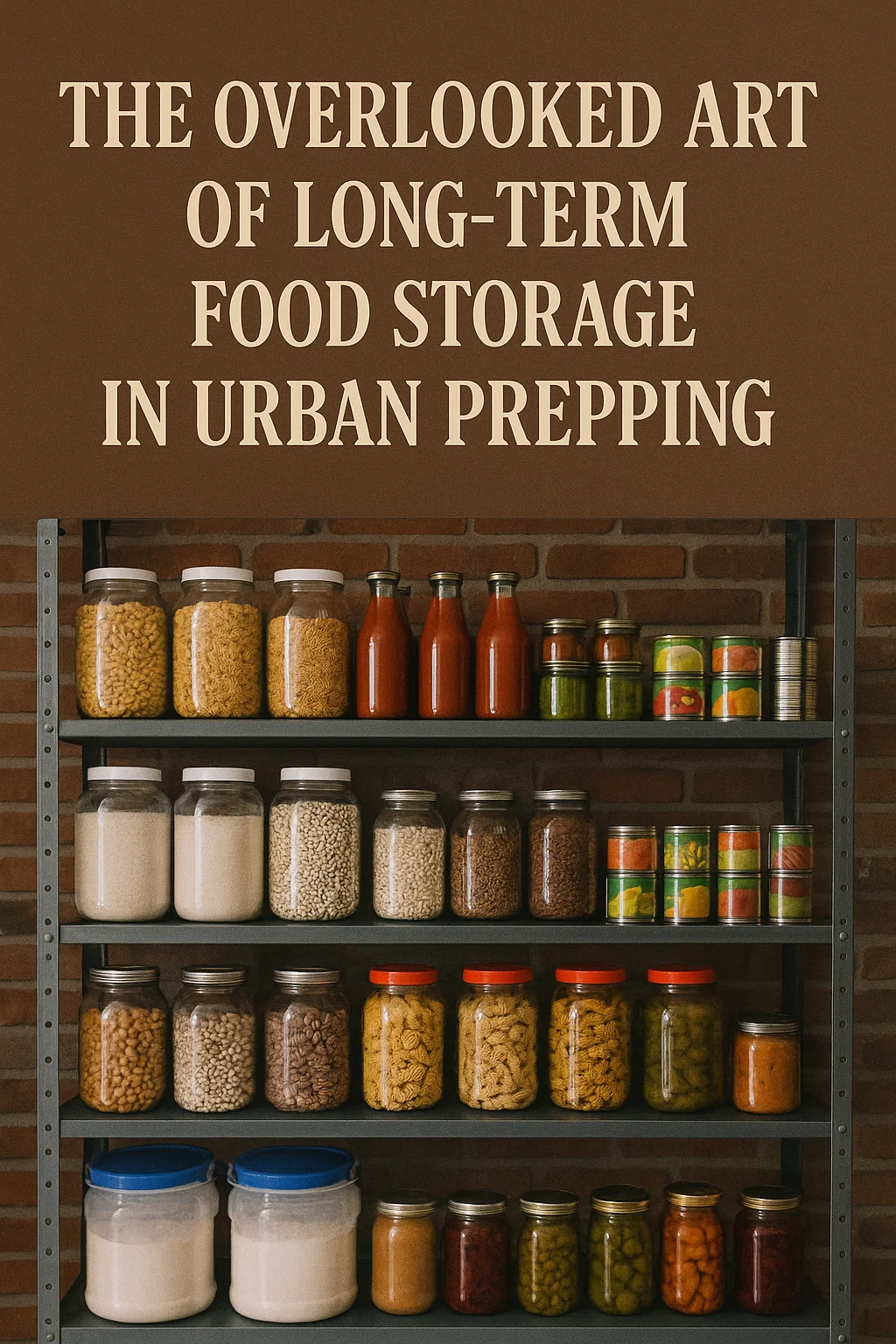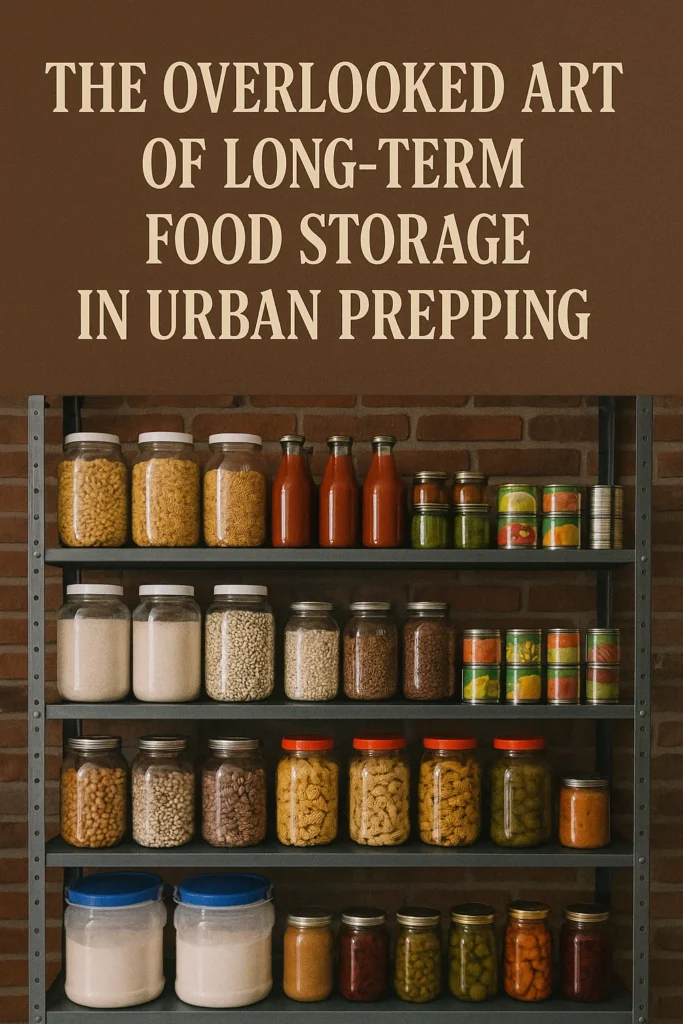When conversations around survival prepping arise, topics like bug-out bags, wilderness survival, and tactical gear often dominate the discussion.
Yet one critical, often overlooked aspect of preparedness is long-term food storage, especially for urban preppers.
In cities—where space is limited and dependence on external food systems is high—building a sustainable food reserve can be the deciding factor between resilience and vulnerability during prolonged emergencies.
crisisprepper.com
Why Long-Term Food Storage Is Essential for Urban Preppers
Urban environments are particularly fragile when it comes to food supply chains.
Events like natural disasters, pandemics, or economic disruptions can empty store shelves within hours, leaving millions without access to basic supplies.
Proactively storing food ensures your family’s survival, independence, and security during unpredictable times — reducing your reliance on unstable external systems.

Unique Challenges of Urban Food Storage
Urban prepping presents specific hurdles:
- Limited Space
Apartments, condos, and smaller homes offer minimal storage capacity. - Climate Control
Maintaining ideal temperature and humidity levels can be difficult without dedicated storage areas. - Pest Management
Compact living spaces require extra vigilance to protect against rodents, insects, and spoilage.
Proven Strategies for Effective Urban Food Storage
Think beyond traditional cabinets.
- Install sturdy shelving units.
- Use hanging racks and stackable bins.
- Store supplies under beds, in closets, and high shelving areas you don’t typically use.
Tip: Use adjustable shelving systems to fit various container sizes easily.
Urban storage demands smart food choices. Stockpile items offering high nutrition per volume:
- Dehydrated Meals: Extremely lightweight, nutrient-rich, and have long shelf lives.
- Canned Goods: Beans, meats, and vegetables are durable and versatile.
- Grains & Legumes: Staples like rice, lentils, oats, and quinoa store well and provide high-calorie, high-protein nutrition.
Tip: Aim for a minimum three-month food supply to start, then gradually build to six months or longer.
Rotate your food regularly:
- Place new items behind older ones.
- Use and replace the oldest items first.
Benefits:
- Reduces waste
- Ensures a consistently fresh inventory
Proper storage prevents spoilage and contamination.
Use:
- Airtight containers (BPA-free and food-grade)
- Mylar bags with oxygen absorbers
- Vacuum sealing for bulk dry goods
Pro Tip: Label everything with purchase dates and expiration dates for easy management.
Don’t keep all your supplies in one spot.
Split your reserves:
- In different rooms
- High shelves
- Basement corners
- Under-bed containers
Why? If one area is compromised (like a flood or pest infestation), you won’t lose everything at once.
Critical Extras Urban Preppers Must Not Overlook
Water Storage
Plan for one gallon per person per day.
Also stock water purification systems like filters or purification tablets.
Inventory Management
Schedule monthly checks of all supplies to replace expiring or damaged items.
Stay Informed
Monitor local news, supply chain reports, and weather warnings to adapt your storage strategy ahead of disruptions.
Conclusion: Future-Proof Your Family’s Survival
Long-term food storage isn’t a “prepper luxury” — it’s an essential, life-saving strategy for every urban resident.
By proactively addressing the challenges of space, climate control, and organization, you can build a food reserve that stands strong against any crisis.
Preparedness isn’t about fear — it’s about empowerment and peace of mind.
The best time to build your food security was yesterday. The next best time is today.


Thank you for your sharing. I am worried that I lack creative ideas. It is your article that makes me full of hope. Thank you. But, I have a question, can you help me? https://www.binance.com/vi/register?ref=WTOZ531Y
Thanks for sharing. I read many of your blog posts, cool, your blog is very good.
Thanks for sharing. I read many of your blog posts, cool, your blog is very good.